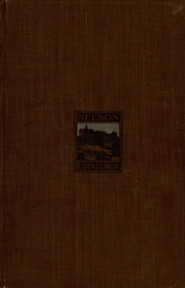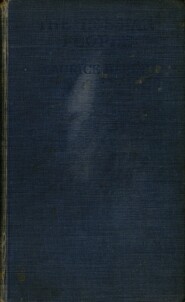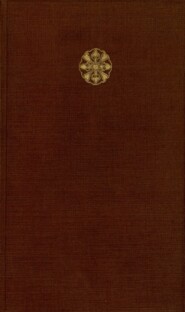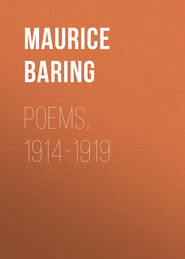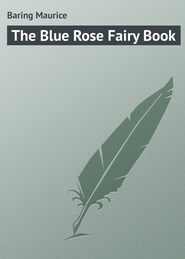По всем вопросам обращайтесь на: info@litportal.ru
(©) 2003-2024.
✖
Passing By
Настройки чтения
Размер шрифта
Высота строк
Поля
Gertrude and Edmund Anstruther arrived yesterday. I dined with them to-night. Edmund said the way diplomats were treated was a scandal. The hard-working members of the profession were always passed over. The best posts were given to men outside the profession. No conscientious man could expect to get on in such a profession. If he was passed over this time he would not stand it any longer, but he would leave the Service altogether. The Foreign Office, he said, was so weak. They never backed up a subordinate who took a strong line. They always climbed down. I wondered what Edmund had been taking a strong line about in Buenos Aires. Gertrude agreed. She said they had been there for three years without leave, and if they did not get a good post she would advise Edmund to retire and get something in the City. There were plenty of firms in the city who would jump at getting Edmund. She mentioned the Housmans and said she knew they were friends of mine, and didn't want to say anything against them, but she had met many people in Buenos Aires who knew Mrs Housman intimately, and said she was rather a dangerous woman. I asked in what way she was dangerous. Gertrude said: "Perhaps you do not know she is a Roman Catholic." I said I had known this for years, but she never talked of it. "That's just what I mean," said Gertrude; "they are far too subtle, and I am afraid too underhand to talk of it openly. They lead you on." I asked Gertrude if she thought Mrs Housman wished to convert me. She said most certainly. Her friends in Buenos Aires had told her she had made many converts. It was the only thing she cared for, and even if she didn't, Roman Catholics were obliged to do so. It was only natural, if they thought we all went to hell if we were not converted.
I said I was not sure Roman Catholics did believe that. Gertrude and Edmund said I was wrong. I could ask anyone. Gertrude repeated she had no wish to say anything against Mrs Housman, and she was convinced she was a good woman according to her lights.
Edmund said there had been many conversions in the Diplomatic Service. He was convinced this was part of a general conspiracy. If you wanted to get on in the Diplomatic Service you had better be a Roman Catholic. Of course those who did not choose to sacrifice their conscience, their independence, their traditions, and were loyal to the Church and the State, suffered. I said I didn't quite see where loyalty to the State came in. Edmund said: "How could you be loyal to the State when you were under the authority of an Italian Bishop?" I must know that the Italian Cardinals were always in the majority. I said that, considering the number of Catholics in England, compared with the number of Catholics in other countries, I should be surprised to see a majority of English Cardinals at the Vatican. I said Edmund wanted England to be a Protestant country, and at the same time to have the lion's share in Catholic affairs. Edmund said that was not at all what he meant. What he meant was that an Englishman should be loyal to his Church, which was an integral part of the State.
I said there were many Englishmen who would prefer the State to have nothing to do with the Church. Edmund said there were many Englishmen who did not deserve the name of Englishmen. For instance, Caryl, who was now Second Secretary at Paris, had been promoted over his head three years ago. What was the reason? Mrs Caryl was a Roman Catholic and Caryl had been converted soon after his marriage. I foolishly said that the Caryls were now in London, and when Edmund asked me how I knew this I said that Aunt Ruth had told me.
This raised a storm, as it appears that Aunt Ruth does know the Caryls and asks them to dinner when they are in London. Edmund said he would talk to Aunt Ruth about them seriously. I asked him as a favour to do no such thing. And Gertrude told him not to be foolish, and added magnanimously that Mrs Caryl was a nice woman, if a little fast.
For a man who has lived all his life abroad Edmund Anstruther is singularly deeply imbued with British prejudice.
They are staying in London until the middle of July. Then they are going on a round of visits. Edmund is confident that he will get Christiania. I feel that it is more than doubtful.
Riley went back to Shelborough to-day.
Saturday, June 11th.
Received a telegram from Housman, asking me to go to Staines. I went down by the afternoon train, and found Lady Jarvis, Miss Housman and Carrington-Smith. Housman was anxious for news of A. I told him I believed he was now out of danger, but that it would be a long time before he was quite well again. Housman said he must certainly come to Cornwall. I said he had intended to go to Canada for a Conference, but would be unable to do so now. Housman said that was providential.
Sunday, June 12th.
A fine day, but the river was crowded and hardly enjoyable. I sat with Mrs Housman in the garden in the evening. The others went on the river again. Mrs Housman asked me if I had seen A. I said he was not allowed to see anyone.
Monday, June 13th.
A. is getting on as well as can be expected. There appears to be no doubt of his recovery. Cunninghame is going to see him to-day.
Tuesday, June 12th.
Cunninghame says that A. wants to see me. I am to go there to-morrow.
Dined with Hope, who was at Oxford with me. He is just back from Russia, where he has been to make arrangements for producing some play in London. He thinks of nothing now but the stage, and a play of his is going to be produced at the Court Theatre. I promised to go and see it. He spoke of Riley, and I told him he had become a Roman Catholic. Hope said he regarded that as sinning against the light. He said no one at this time of day could believe such things.
Wednesday, June 15th.
I went to see A. at Welbeck Street. He has been very ill and looks white and thin. His sister was there, but I had some conversation with him alone. I told him all the news I could think of, which was not much. He said he liked seeing people, but was not allowed more than one visitor a day. He had got a very good nurse. Housman had sent him grapes and magnificent fruit every day. He said he would like to see Mrs Housman, but supposed that was impossible, as she never came to London now. He said Cunninghame had been very good to him, and had put off going to Ascot to look after him.
I wrote to Mrs Housman this evening and gave her A.'s message.
Thursday, June 16th.
Dined with Aunt Ruth. Gertrude and Edmund were there. Edmund said to Aunt Ruth that he had heard the Caryls were in London. Aunt Ruth said she had no idea of this, and she would ask them to dinner next Thursday. Aunt Ruth asked a good many diplomats to meet Edmund, and they had a long talk after dinner about their posts. They called Edmund their "Cher collègue." Edmund enjoyed himself immensely. Uncle Arthur cannot bear him, nor, indeed, any diplomats, and it is, I think, the chief cross of his life that Aunt Ruth asks so many of them to dinner.
Aunt Ruth asked after A. and said that she had been to inquire.
Friday, June 17th.
Received a letter from Mrs Housman, saying she was coming up to London to-morrow, and was going to stay with Lady Jarvis till Monday. She would go and see A. on Sunday afternoon if convenient. She asked me to ring up the nurse and find out. I did so and arranged for her to call at four o'clock.
Saturday, June 18th.
I dined with Lady Jarvis. There was no one there but Mrs Housman and myself. Cunninghame is staying somewhere with friends of the Caryls.
Sunday, June 19th.
I had luncheon with Aunt Ruth. Edmund and Gertrude were there, but no one else. Edmund has been appointed to Berne. It is not what he had hoped, but better than any of us expected. He said Berne might become a most important post in the event of a European war.
Monday, June 20th.
Dined with the Caryls at the Ritz. Cunninghame was there and Miss Hollystrop. Mrs Vaughan asked me whether it was true that A. had become a Roman Catholic. She had heard Mrs Housman had converted him. Cunninghame deftly turned the conversation on account of Mrs Caryl.
We all went to the opera —Faust.
Tuesday, June 21st.
I went to see A. He told me Mrs Housman had been to see him. He is still in bed, but looks better.
Wednesday, June 22nd.
Barnes of the F.O. came to the office this morning. He asked after A. He said he had heard that the real cause of his illness was his passion for Mrs Housman, who would have nothing to do with him unless he was converted. Cunninghame said he wondered he could talk such nonsense.
Thursday, June 23rd.
Went to Aunt Ruth's after dinner. The Caryls were there, and Gertrude and Edmund came after dinner. Heated arguments were going on about the situation in Russia, Edmund taking the ultra-conservative point of view, much to the annoyance of Aunt Ruth and Uncle Arthur, who felt even more strongly on the matter because he thought they were discussing the French Revolution.
Friday, June 24th.
Dined with Lady Jarvis; she was alone. She said Mrs Housman was coming up again to-morrow. The fact is, she says, Staines is intolerable now on Sundays. Mrs Fairburn comes down almost every Sunday. She overwhelms Mrs Housman with her gush and her pretended silliness. Housman thinks her the most wonderful woman he has ever met.
Saturday, June 25th.
Went down to S – to stay with Riley. Riley lives in a small villa surrounded with laurels. A local magnate came to dinner, who is suspected of being about to present some expensive masterpieces to the public gallery.
Sunday, June 26th.
Riley went to Mass in the morning. I sat in his smoking-room, which is a litter of books and papers and exceedingly untidy. A geologist came to luncheon, Professor Langer, a naturalised German. When we were walking in the garden afterwards, he said he could not understand how Riley reconciled his creed with plain facts of geology. But Riley's case surprised him less than that of another of his colleagues, who was a great authority on geology, and nevertheless a devout Catholic, and not only never missed Mass on Sundays, but had told him, Langer, that he fully subscribed to every point of the Catholic Faith. It was true he was an Irishman, but politically he was not at all fanatical, and not even a Home-Ruler.
In the afternoon we had tea with the magnate, whose house is full of Academy pictures. I now understand what happens to that great quantity of pictures we see once at the Academy and then never again. An art critic was invited to tea also. He had, I believe, been invited here to persuade the magnate in question to present some very modern piece of art to the city. He seemed disappointed when he saw the pictures on the walls, and when the magnate asked his opinion of a composition called A Love Letter, he said he did not think the picture a very good one. The magnate said he regretted not having bought Home Thoughts, by the same painter, which was undoubtedly superior.
We dined alone, and I told Riley what Professor Langer had said. He said: "Most Protestants, whether they have any religion or not, attribute Protestant notions to the Catholic Church. What these people say shows to what extent the conception of Rome has been distorted by their being saturated with Protestant ideas. Mallock says somewhere that the Anglicans talk of the Catholic Church as if she were a lapsed Protestant sect, and they attack her for being false to what she has never professed. He says they don't see the real difference between the two Churches, which is not in this or that dogma, but in the authority on which all dogma rests. The Professors you quote take for granted that Catholics base their religion, as Protestants do, on the Bible solely, and judged from that point of view she seems to them superstitious and dishonest. But Catholics believe that Christ guaranteed infallibility to the Church in perpetuum: perpetual infallibility. Catholics discover this not at first from the Church as doctrine, but from records as trustworthy human documents, and they believe that the Church being perpetually infallible can only interpret the Bible in the right way. They believe she is guided in the interpretation of the Bible by the same Spirit which inspired the Bible. She teaches us more about the Bible. She says this is what the Bible teaches."
He said: "Mallock makes a further point. It is not only Protestant divines who talk like that. It is your advanced thinkers, men like Langer and his colleagues. They utterly disbelieve in the Protestant religion; they trust the Protestants in nothing else, but at the same time they take their word for it, without further inquiry, that Protestantism is more reasonable than Catholicism. If they have destroyed Protestantism they conclude they must have destroyed Catholicism a fortiori. With regard to Langer's geological friend, it doesn't make a pin's difference to a Catholic whether evolution or natural selection is true or false. Neither of these theories pretends to explain the origin of life. Catholics believe the origin of life is God." He had heard a priest say, not long ago: "A Catholic can believe in evolution, and in evolution before evolution, and in evolution before that, if he likes, but what he must believe is that God made the world and in it mind, and that at some definite moment the mind of man rebelled against God."
Monday, June 27th.
A. telephoned for me. I saw him this afternoon. His room was full of flowers. He will not be allowed to get up till the end of the week. As soon as he is allowed to go out the doctor says he ought to go away and get some sea air. There is no question of his going to Canada. The Housmans have asked him to go to Cornwall and he is going there as soon as he can. He asked me when I was going. I said at the end of the month, if that would be convenient to him.
Tuesday, June 28th.






